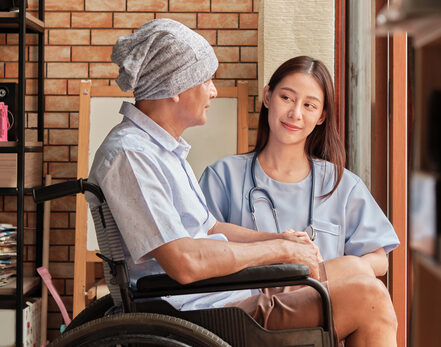In the realm of health battles, cancer often stands as an adversary of immense proportions. Yet, amidst the daunting challenges and profound struggles, there lies a narrative of resilience, courage, and triumph. Cancer survivors, individuals who have braved the tumultuous journey of diagnosis, treatment, and recovery, stand as beacons of hope and inspiration. While their stories are as diverse as the colors of the spectrum, there is a common thread that binds many: the transformative power of mobility solutions in reclaiming autonomy and enhancing quality of life.
Cancer, with its multifaceted impacts on physical, emotional, and social well-being, can significantly impede mobility. From the debilitative effects of treatments such as chemotherapy and radiation to the physical limitations imposed by surgeries, cancer often leaves survivors grappling with newfound challenges in movement and independence. However, in the face of adversity, innovation and ingenuity have paved the way for a plethora of mobility solutions tailored to the unique needs of cancer survivors.
One of the most emblematic symbols of mobility empowerment for cancer survivors is the advent of prosthetics. For those who have undergone amputations as part of their cancer treatment, prosthetic limbs represent not only a physical aid but also a profound symbol of resilience and adaptation. With advancements in prosthetic technology, modern devices offer unprecedented levels of functionality, comfort, and aesthetics, enabling cancer survivors to navigate the world with newfound confidence and agility.
Furthermore, assistive devices such as wheelchairs, walkers, and mobility scooters have emerged as indispensable allies in the journey towards reclaiming mobility. These tools not only facilitate movement but also serve as enablers of independence, allowing cancer survivors to engage in daily activities, participate in social interactions, and pursue their passions with greater ease and freedom. Moreover, customized adaptations and accessories cater to the unique needs and preferences of individuals, ensuring optimal comfort and functionality.
Beyond physical aids, the realm of mobility solutions extends to encompass a diverse array of supportive services and initiatives aimed at enhancing accessibility and inclusivity for cancer survivors. Accessible transportation services, community-based support groups, and adaptive sports programs provide avenues for connection, empowerment, and enrichment, fostering a sense of belonging and camaraderie among survivors.
In addition to tangible aids and services, the concept of mobility encompasses a broader dimension that transcends physical movement. It encompasses the ability to engage with the world on one’s own terms, to pursue aspirations and dreams, and to embrace life with vitality and vigor. In this sense, the true essence of mobility empowerment lies not merely in the act of traversing physical spaces but in the liberation of the human spirit from the shackles of limitation and constraint.
The transformative impact of mobility solutions extends far beyond the individual level, resonating across familial, societal, and global spheres. By empowering cancer survivors to lead fulfilling and active lives, these solutions contribute to the cultivation of a more inclusive and compassionate society, where diversity is celebrated, and barriers are dismantled. Moreover, they serve as catalysts for innovation and progress, inspiring breakthroughs in healthcare, technology, and social policy.
Yet, amidst the strides made in the realm of mobility empowerment, challenges and barriers persist. Accessibility issues, financial constraints, and disparities in healthcare access continue to pose formidable obstacles for many cancer survivors, limiting their ability to fully benefit from available solutions. Addressing these challenges requires a concerted effort from stakeholders across sectors, including policymakers, healthcare providers, philanthropists, and community leaders, to ensure equitable access to mobility solutions for all.
In the journey of cancer survivorship, every step taken towards mobility empowerment is imbued with significance and meaning. It symbolizes not only a triumph over adversity but also a testament to the indomitable human spirit. As cancer survivors rise above the challenges that once sought to confine them, they inspire others to embark on their own journeys of resilience, hope, and renewal.
In conclusion, the narrative of cancer survivors is one of courage, resilience, and empowerment. Through the transformative power of mobility solutions, they defy the limitations imposed by illness and reclaim their rightful place as active participants in life’s journey. As they navigate the terrain of survivorship with grace and determination, they remind us all of the boundless potential that resides within the human spirit to rise, thrive, and soar beyond the confines of circumstance.




